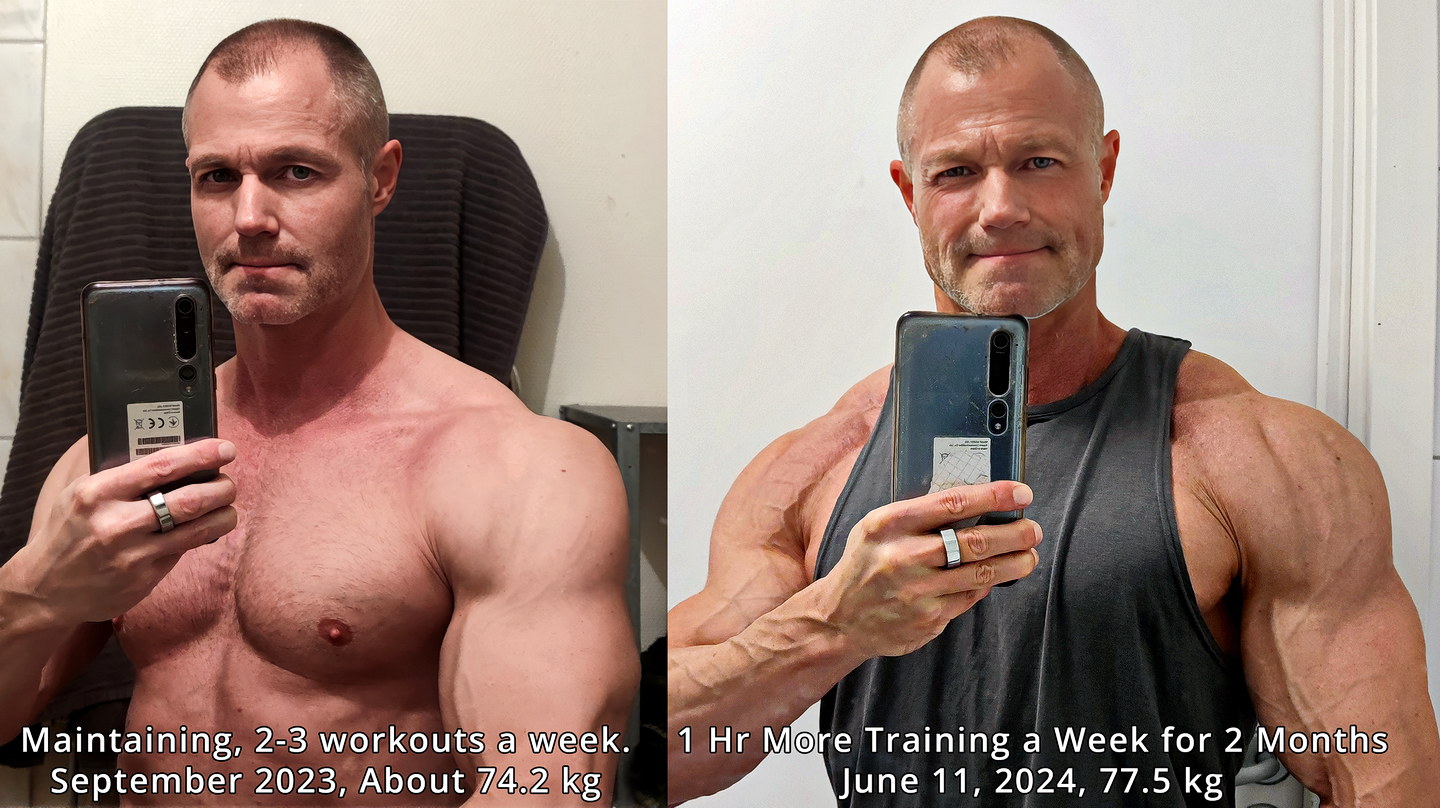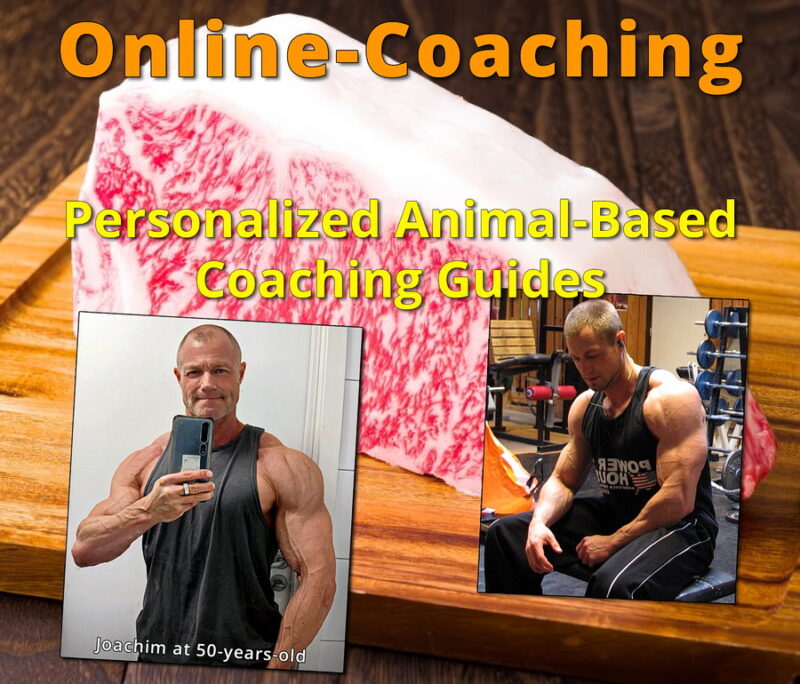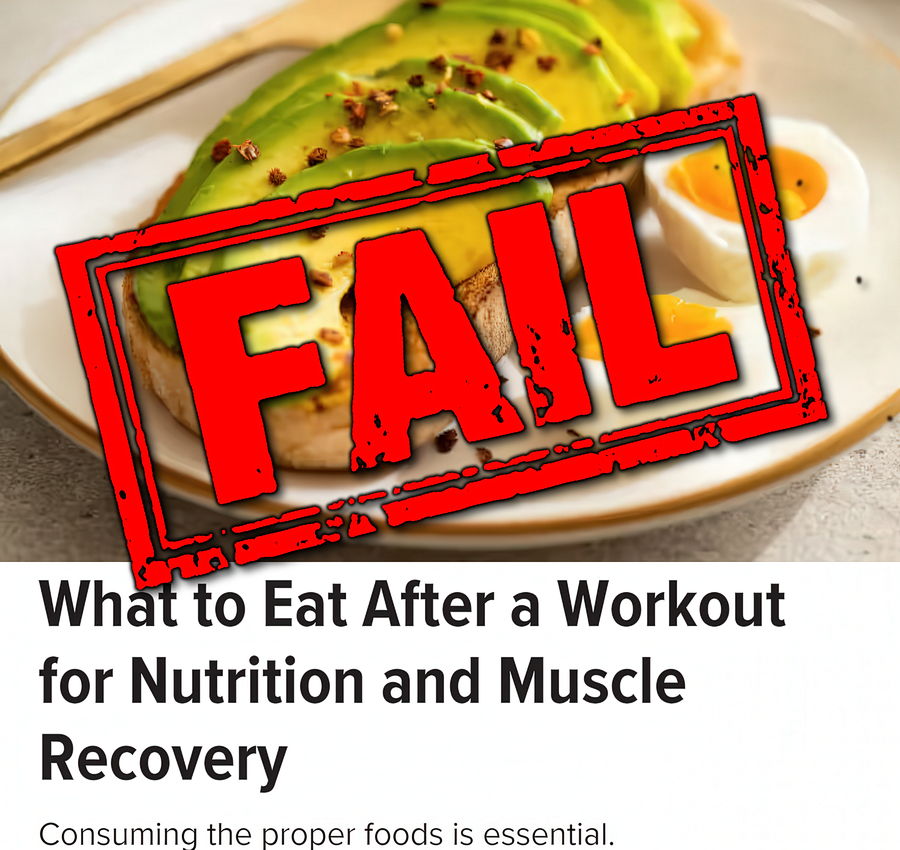Today, for a laugh, we return to the Big Pharma and Government shill-site known as Healthline, one of the worst places for pure disinformation and propaganda on anything health- and nutrition related. A few days ago they posted an article on workout nutrition by Arlene Semeco, MS, RD and Celia Shatzman, which was “medically reviewed” by Jared Meacham, Ph.D., RD, CSCS. That simply means that a bunch of trained and indoctrinated monkeys wrote a piece of fictional garbage inline with their bastardized education and it was approved by a head-monkey who made sure they followed the current inverted belief system and propaganda. By doing this, Healthline makes sure that they do not publish something that might be outside the box, something that challenges the current narrative that is to keep people as sick and dependent on their services as possible (as in the medical- and food industry.)
Now, let’s see what they have to say about ‘workout nutrition’ in 2024.
“During exercise, your muscles use up their glycogen, which is the body’s preferred fuel source. This results in your muscles being partially depleted of glycogen. Some of the proteins in your muscles can also be broken down and damaged during exercise.”
This depends on the intensity of the exercise. Glycogen is simply a ‘reserve’ of ‘glucose’ that is stored within skeletal muscle and the liver, and that is solely used for high-intensity efforts, which requires glucose, such as lifting weights, interval training, running, or swimming and bicycling above moderate effort. At lower intensities the body mostly relies on fat for energy.
As you should know, our bodies have this unique metabolic mechanism called ‘gluconeogenesis’ where our body converts fat and amino acids into all the glucose we would ever need. The interesting thing that pretty much no coach or athlete understands or even know about is that this process of our body making its own glucose is a lot faster than getting glucose from an exterior source, as in drinking a carbohydrate-based sport drink or using similar sources of glucose — as these has to pass the stomach and then be absorbed in the small intestine, a process that also requires digestion and a lot of blood, which negatively impact performance.
This means, that if you’re an athlete who partake in moderate endurance events, like marathons or long bicycling runs, and you consume carbohydrates during the race/activity, you are actually limiting your performance while hurting your body (as glucose levels above normal is extremely damaging for all of our soft cells.) Instead, you should be fully fat-adapted from following our natural species-appropriate diet, as in following a ketogenic high-fat diet, which means that you can utilize fat better than any other ‘athlete,’ all while your gluconeogenesis work at peak efficiency, supplying you with all the glucose you might need when increasing your effort. By doing this, you will easily outperform any athlete who is dependent on carbohydrates.
As for more intense exercise, muscle glycogen will be replenished by gluconeogenesis, but not at the rate that you will use it up if you train really hard. That is why you get tired and your performance and even strength declines a bit during your workout. This scenario is true whether you throw down carbohydrates or if you are fat-adapted and only consume fat and protein. There is always a limit to how quickly your body can adapt and keep up, otherwise we would be tireless machines and go on until we break down due to too much inflicted damage and die from rhabdomyolysis (extreme physical exertion that breaks down and kills the cells.)
With that said, someone who follows our natural diet of only animal fat and protein, and that is fat adapted and has a highly functional gluconeogenesis will recover much faster and can keep a higher intensity in their workouts compared to those fooled into consuming toxic carbohydrates. This is common sense, as that is how our bodies are constructed.
“After your workout, your body rebuilds glycogen stores and regrows those muscle proteins.”
Yes, glycogen stores will be replenished either by gluconeogenesis, by converting fat and amino acids into glucose, which is our natural pathway, or by consuming carbohydrates that break down to glucose. And damaged muscle cells will adapt to the demands put upon them by growing. That process however only requires amino acids, some nutrients as found in animal-based foods, and adequate hormone levels. It’s important to separate the two.
“However, research suggests that eating the right nutrients soon after exercising can help your body do this faster. Properly fuelling your body after exercise can also help:
- decrease muscle protein breakdown
- increase muscle protein synthesis (growth)
- improve your mood
- enhance recovery”
It’s not necessary to eat anything soon after exercise provided that you have had a nutrient-dense meal earlier, as a good-sized meal can take 3 to 6 hours to fully digest and during that time nutrients are abundant in your bloodstream — and for several hours after digestion has ended. However, if you train fasted, or haven’t had a meal in 6 hours or so, it is a good idea to eat within an hour after exercise to properly provide nutrients and building blocks for healing and repair.
“The three macronutrients are protein, carbs, and fat. These may each play a role in your body’s post-workout recovery process.”
Yes, but carbohydrates are not a required macronutrient for humans, it’s actually contraindicated to the human diet and very damaging to our physiology. I’ve explained this multiple times.
Protein for Repair and Building Muscle
“Exercise triggers the breakdown of muscle protein. The rate at which this happens depends on several factors, such as training volume, intensity, and frequency.
Consuming an adequate amount of protein throughout the day gives your body the amino acids it needs to repair and rebuild these proteins. It also gives you the building blocks required to build new muscle tissue.
The International Society of Sports Nutrition (ISSN) recommends consuming 20 to 40 grams (g) of protein every 3 to 4 hours. This may help improve your exercise performance, muscle recovery, and body composition.
It’s also important to consume protein before and after exercise.”
There’s absolutely no need to consume protein every 3 to 4 hours. That bro-science has been debunked plenty of times by now. A few much larger meals (higher in protein) are much better for muscle anabolism and also less taxing for the digestive system. Continuously eating will keep your digestive system running the whole day, never getting a chance to relax, recover, repair and heal more than a few hours during the night. That is really bad.
Simply have your first meal as soon as you feel ready to eat, the earlier the better, and then have two to four meals total in a day, with the last meal no later than 4 to 6 hours before bed to allow you to go to sleep in a fasted state so your body can detox, heal, and repair during your sleep. Two meals are ideal for most people. Three meals are ideal for those who are very active and carry some extra muscle mass, like myself. And four meals are ideal for elite level athletes or those with a lot of muscle mass.
As for protein, 2.2 to 2.6 grams per kilogram of bodyweight per day depending on your goals. Just break it down into the desired number of meals. And if you’re really serious about building muscle mass, you can have an extra pre- or post-workout meal with easily digested protein such as raw eggs or a natural protein powder. No need to complicate it. As long as you have at least two meals a day and meet your protein requirements, those amino acids will be available in your bloodstream and your amino acid pool and used for repair and recovery.
Glycogen Replenishment
“Your body’s glycogen stores are used as fuel during exercise, and consuming carbs after your workout helps replenish them.”
Your body’s own natural process of gluconeogenesis will replenish glycogen at about 2 mmol/kg per hour, or even faster if you’re healthy and fat-adapted.
However, if you consume carbohydrates, which raises blood glucose above its natural levels, your body has no other option than to release a lot of insulin to quickly eliminate that glucose and store it as glycogen and body fat, as it will otherwise damage all your sensitive soft tissues, especially your cardiovascular system. So, when glycogen stores are low, and due to a massive release of insulin and available glucose after consuming carbohydrates, your body can replenish glycogen at about 6 to 8 mmol/kg per hour, about 3 to 4 times quicker than through gluconeogenesis. However, this is purely a survival mechanism as you have poisoned your body by increasing blood glucose by unnatural means and it has to be neutralized as quickly as possible to minimize damage.
So, yes, you can replenish glycogen stores quicker by consuming carbohydrates at the cost of damaging your cardiovascular system, organs and gland tissues, and your eyes — as in all tissues that are sensitive to abnormal levels of glucose.
In other words, if you do not care about your health and you want to maximize performance, as in training very intensely again within only a few hours, there might be a little advantage to consuming carbohydrates immediately after an intense training session.
However, keep in mind that if you are fully fat-adapted and your gluconeogenesis is working optimally, you will produce more glucose when doing intense work. So, even if you have not replenished your glycogen stores, you can go pretty hard again, if you for some reason have another workout scheduled only a few hours later.
With that said, if you only workout once a day, and perhaps only 3, 4 or 5 times a week, there is absolutely no reason to poison yourself to replenish your glycogen stores a little bit faster, as they will be fully restored by gluconeogenesis on a daily basis.
If you’re an elite athlete, you should be 100% carnivore, as in following our natural species-specific diet of animal protein and fat. And once fully fat-adapted and when you notice that you perform a lot better than you did on a shitty balanced diet, you can always experiment with smaller amounts of pure carbohydrates during or right after a workout to get both the benefits of more available glucose from gluconeogenesis and a faster replenishment of glycogen from carbohydrates. However, always keep in mind that it will damage your body, especially long term. It’s up to you if it’s worth the cost.
And if you opt for some carbohydrates I recommend that you take a few days off every six months or so and do a dry fast of at least 3 days to heal some of the damage done by elevated blood glucose levels to your tissues. That might counteract some of the problems you otherwise would face as you grow older.
Benefits of Fat
“Many people think that eating fat after a workout slows digestion and inhibits the absorption of nutrients. While fat might slow down the absorption of your post-workout meal, it may not reduce its benefits.”
If you opt for carbohydrates, do not consume fat at the same time. However, if you’re a sane person and follow our natural diet and let gluconeogenesis replenish your glycogen stores, animal fat is our best and only natural energy source. A little fat, as in butter or a few egg yolks, before a workout can do wonders for energy. The same is true for some sodium or electrolytes, as water is pulled to the cells, keeping them hydrated and also functioning as a stabilizer, making you a bit stronger.
After this, Healthline mostly dwells on useless timings and what foods to consume. As they are totally ignorant of human nutrition, there’s no need to cover it. Simply head over to my Quick Start Nutrition Archives and you’ll find more than you’ll ever need on the subject.
To conclude, their recommendations are in line with what I was taught in the late 80’s and early 90’s, and while I always gravitated towards a ketogenic diet, I did experiment a lot with both protein, amino acids and carbohydrates around my own and my clients’ training sessions. And yes, it does make a difference — but only if you are addicted to carbohydrates, as in consuming them daily, as in having a damaged fat metabolism and a poor functioning gluconeogenesis.
Now, as a 100% raw carnivore since early 2018, going on 6.5 years now and being 50-years old, my current training sessions while being fully fat-adapted and utilizing gluconeogenesis simply blows all my previous workouts out of the water.
With what I’m doing now, my body is much more responsive. During 2023 and early 2024, I averaged 2 to 3 training sessions a week of only 30 minutes a time, which was enough to maintain my physique. During the last couple of months (April, May, and June,), we’ve been able to do 4 to 5 of these 30-minute sessions a week, and as of today, June 23, I’ve gained about 3 kg (7 lbs.) while becoming a lot leaner (the photo is from 12 days ago.) I actually have to hold back, as I do not want to become heavier and more muscular, as it is a strain on the body. I simply want a decent muscular and athletic physique that can perform pretty well, especially at my age, while still being within the reasonable limits of what is healthy. And this is simply by consuming a lot of meat and animal fat and increasing my training volume from a pathetic 1.5 hours a week to 2.5 hours a week. Again, I have not touched carbohydrates in over 6 years.

If you have questions about training and nutrition, or if you need help with transitioning to our natural species-appropriate carnivorous way of eating, I’m available for both coaching and consultation.
And if you found the article and my insights helpful and you enjoy my free information, please consider donating to help pay the webhosting bills and keep the site running. Thank you!


